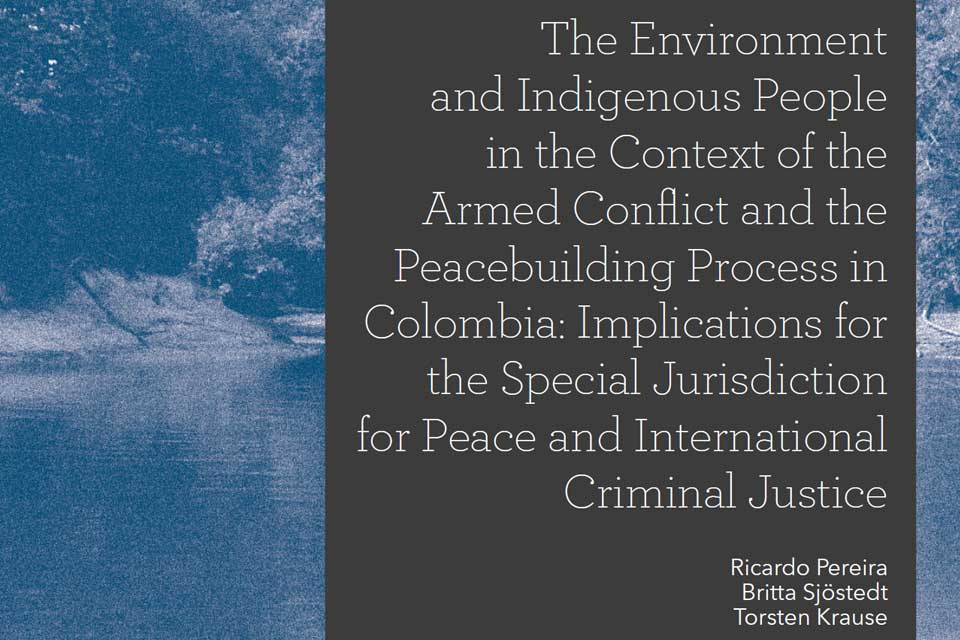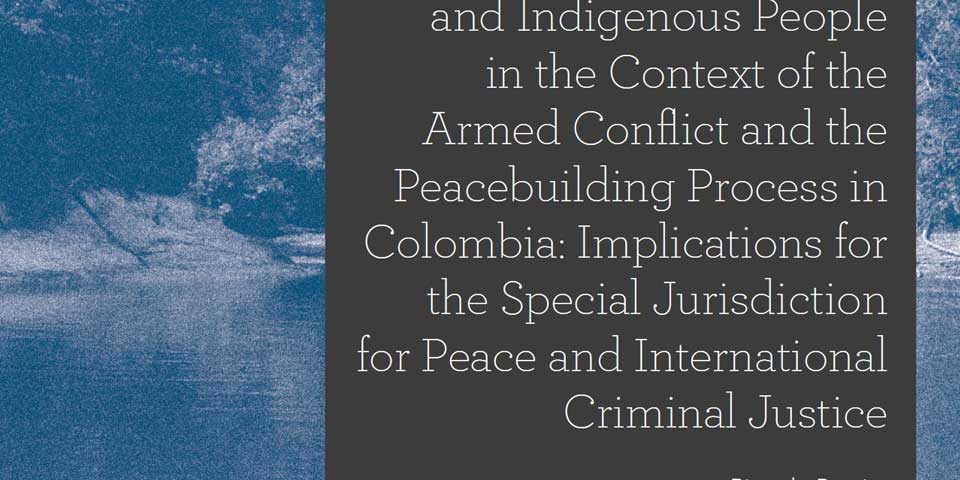Legal violations against the environment and Indigenous peoples should be addressed in order to build a sustainable peace.

This policy brief aims at assessing the impact of the armed conflict in Colombia on the environment and on indigenous peoples, and the application of the rules of IHL and international criminal law to the armed conflict as well as their implications for the Special Jurisdiction for Peace (JEP) and for international criminal justice.
Section 1 discusses the implications of the armed conflict as well as the peacebuilding process for indigenous peoples’ rights and environmental protection in Colombia and provides a brief background to the creation of the JEP. In this section we also include a brief case study of the impact of the armed conflict on the protection of the environment in the Putumayo department.
Section 2 provides a background to the rules of international law relevant to internal armed conflicts and their application in the protection of the environment and natural resource conservation, with references to the situation in Colombia. It also discusses how far international law can be applied to build sustainable peace and development in post-conflict scenarios.
Section 3 starts by discussing the four core international crimes under the International Criminal Court Statute and how they relate to environmental protection and natural resource governance in the context of the conflict in Colombia. It also discusses the potential role for non-governmental organisations and civil society in Colombia to bring communications before the ICC Office of the Prosecutor for the protection of the environment and the rights of indigenous peoples. The final section summarises the findings and presents further recommendations.





